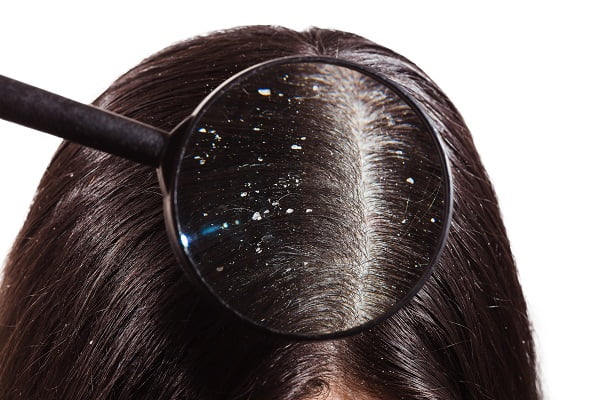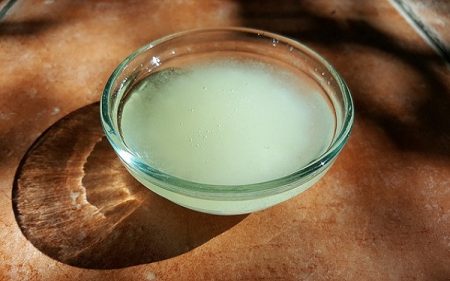Understanding About Dandruff
- Updated on: Jul 10, 2024
- 5 min Read
- Published on Sep 27, 2019


What is dandruff?
Dandruff is a very common and chronic but harmless scalp condition which causes excess flaking and shedding of top layer of the skin on your scalp. This top layer of the skin consists of dead cells.
It is normal to shed off this layer because body continuously produces new cells to replace dead and old cells. However, in case of dandruff, larger scales are shed at an increased rate. Sometimes, dandruff is accompanied by a bit of itching and dryness on the scalp.
Is dandruff a hair problem? Who is more likely to get it?
Dandruff is primarily an aesthetic problem. It is not contagious or medically serious but it is difficult to treat and it can be unpleasant or embarrassing at times. Dandruff really is not about your hair, but about the skin on your scalp.
Dandruff occurs frequently in men as well as in women. It is more prominent in adolescence and young adulthood and tends to decrease thereafter. Individuals with acne or oily skin also have more problems with dandruff.
When you are stressed or sick, dandruff may get worse or its intensity may increase. Cold, dry winters can trigger dandruff or make it worse. Dandruff usually improves during the summer months. Exposure to natural sunlight may help to control it.
What are the signs and symptoms of dandruff?
The symptoms are easy to spot and include white flakes of dead skin in the hair and on the shoulders, with itchy, red and scaly scalp.
If the dandruff is caused by seborrheic dermatitis, the symptom usually appears gradually. First the scalp becomes dry or greasy and feels itchy.
As soon as skin cells die, they turn to yellowish scales. A severe case of seborrheic dermatitis can also cause symptoms in other parts of the body such as on the hairline, in and around the ears, or on the nose and chest.
The flakes caused by psoriasis look like silver scale, which commonly appears on the ears, extremities, trunk, palms, and soles.
Another type of dandruff that affects babies is known as cradle cap. It causes a scaly, crusty scalp and is frequent in newborns. It’s not dangerous and usually clears up on its own.
What are the causes of dandruff? Is dandruff a genetic disorder?
The exact causes of dandruff are unknown. Some links it to the hormonal production, as it mainly appears during adolescent age.
Several possible factors that are regarded as causative agents may include:
- Seborrheic Dermatitis – A condition presented by red, greasy skin covered by white or yellowish flaky scales. Seborrheic dermatitis is linked with Malassezia, a fungus that generally lives on the scalp and feeds on the oils that the hair follicles secrete. This condition is regarded as one of the most frequent causes of dandruff.
- Not shampooing often enough
- Not often hair brushing
- Yeast – People who are sensitive to yeast have higher chances of getting dandruff
- Dry skin
- Sensitivity to hair care products
- Certain skin conditions such as psoriasis, eczema
- Tinea capitis – a fungal infection also known as scalp ringworm, can cause dandruff
- Diet – Not consuming enough foods that contain vitamin B, zinc may increase the risk of getting dandruff
- Mental stress
- Age
What are the risk factors for dandruff?
Almost anyone can get dandruff and it’s not contagious. There are however some factors which makes you more susceptible to it:
Age
Dandruff is more frequent in young adulthood and continues through middle age. It doesn’t mean you can’t get it at later stage of your life. Some people have dandruff as a lifelong condition.
Gender
Since more men have, some researchers think male hormones may have some role to play in it.
Oily hair and scalp
Excessive oily skin makes you more prone to having dandruff.
Certain disease conditions
For unclear reasons, adults with neurological diseases, such as Parkinson’s disease, are more likely to develop seborrheic dermatitis and dandruff. Also, people with HIV infection or those who have compromised immune systems from other conditions are at greater risk for having dandruff.
How is dandruff diagnosed?
Dandruff is a condition that is pretty much self-diagnosed by people or your doctor can easily diagnose simply by looking at your hair and scalp.
A general physician or a dermatologist (skin specialist) generally makes the diagnosis for dandruff based on the appearance of your skin.
What are the treatment options for dandruff?
Dandruff can always be controlled with proper treatment. Various shampoos and medicated scalp products are available over the counter at most stores and pharmacies.
Usually, cleaning of your hair and scalp with a gentle shampoo regularly to reduce oiliness and skin cell buildup helps. If regular shampoos are not effective in improving the condition, anti-dandruff shampoos can be used. Your doctor can prescribe one for you. But all dandruff shampoos are not alike, and you may need to experiment using trial and error until you find one that works for you.
Most anti- dandruff shampoos or anti fungal shampoos or scalp preparations contains one or more of the following ingredients:
Ketoconazole
An effective antifungal agent , which can be used at any age
Selenium Sulfide
This reduces the production of natural oils by glands in the scalp. It is effective in treating dandruff
Zinc Pyrithione
This helps in slowing down the growth of yeast. Such shampoos can help reduce the fungus on your scalp that can cause dandruff and seborrheic dermatitis.
Coal Tar
Coal tar is a natural anti-fungal agent. But there are side effects too. It may cause discoloration if you have light-colored hair. It can be carcinogenic in high doses.
Salicylic Acid
It helps the scalp get rid of skin cells. Treatment with salicylic acid sometimes can leave the scalp dry and make skin flaking worse. Using a conditioner after shampooing can help relieve dryness.
Tea-tree oil
Many shampoos include this ingredient these days. It has been used as an anti fungal and antiseptic for long time.
Generally, one type of shampoo tends to lose its effectiveness after sometime, you should alternate between two types of dandruff shampoos.
You should carefully follow the instructions on each bottle of shampoo you try. Some needs to be left for sometime while others should be immediately rinsed off.
If you are having dandruff even after using these agents for several weeks, you need to consult your doctor or dermatologist. You may need treatment with steroid lotion.
How can dandruff be prevented?
You can take these steps to reduce your risk of developing dandruff:
- Manage your stress level, as it might act as trigger for dandruff
- Shampoo frequently
- Try reducing use of your hair products such as gels and sprays
- Eat a healthy diet
- A little exposure to sunlight can be helpful
- Use tea tree oil as some people believe this helpful in preventing symptoms of dandruff
What are the complications of dandruff?
There are rarely any complications related with dandruff, and it’s not normally necessary to consult a doctor. But there may be some issues with dandruff treatment.
Sometimes, dandruff can be a sign of more serious medical condition and medical consultation should be sought if:
- there is a sign of infection such as redness , swelling or tenderness
- severity of dandruff is high and it still persists after home remedies are used
- there is a sign of other dermatological conditions such as eczema, psoriasis or very itchy scalp
A person with weak immune system such as HIV/AIDS patient should always ask his/her doctor for any sign of dandruff.












